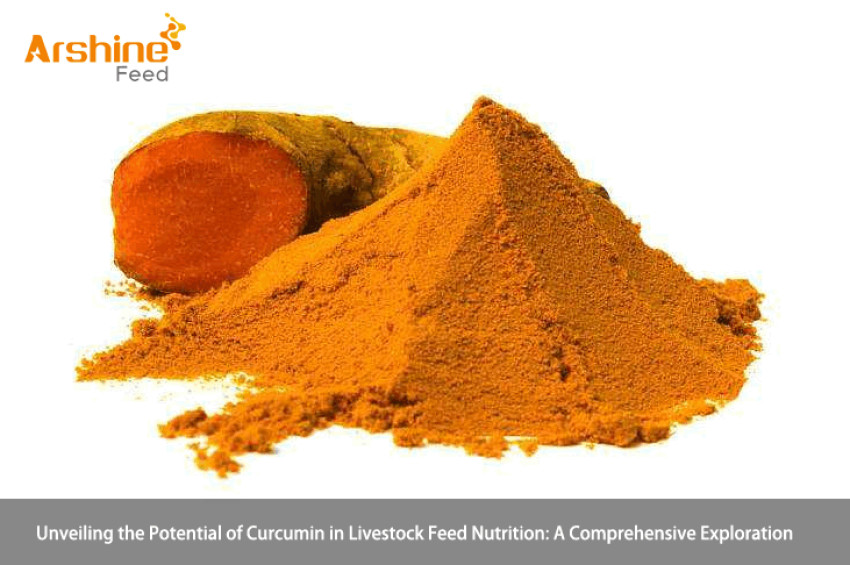
Introduction
Curcumin, a natural polyphenol extracted from the rhizomes of Curcuma longa (turmeric), has gained significant attention for its multifaceted bioactive properties. Long recognized for its therapeutic potential in human health, curcumin's application in livestock feed nutrition is a burgeoning area of research. This article delves into the uses and efficacy of curcumin in feed nutrition, its mechanisms of action, potential benefits, and the considerations that come with its integration into modern livestock management practices.
Curcumin's biological effects stem from its anti-inflammatory, antioxidant, antimicrobial, and immune-modulating properties. It interacts with various cellular pathways, influencing gene expression and signaling molecules. Its ability to modulate immune responses and mitigate oxidative stress makes it a promising candidate for enhancing livestock health and performance.
Feed Nutrition Enhancement
The incorporation of curcumin into animal feed aims to leverage its bioactive properties to promote overall animal well-being, growth, and performance. By influencing key physiological processes, curcumin holds the potential to optimize nutrient utilization, enhance immunity, and alleviate stressors that can impact livestock production.
Proposed Benefits
Anti-Inflammatory Effects: Inflammation is a common response to stressors in livestock production. Curcumin's anti-inflammatory properties may help mitigate excessive inflammatory reactions, reducing the risk of chronic health issues and improving overall welfare.
Antioxidant Support: Curcumin's antioxidative effects can counteract oxidative stress caused by environmental challenges. This is particularly relevant in intensive farming systems where animals are exposed to stressors like heat, crowding, and pathogens.
Gut Health Enhancement: Curcumin's influence on gut microbiota composition may contribute to improved gut health and nutrient absorption. A balanced gut microbial community supports digestion and nutrient utilization.
Immune Modulation: Curcumin's immune-modulating effects can prime the immune system for more effective responses to infections, leading to improved disease resistance and potentially reducing the need for antibiotics.
Stress Alleviation: The adaptogenic properties of curcumin may help animals cope with stressors like transportation, weaning, and environmental changes, ultimately minimizing production losses associated with stress.
Considerations and Challenges
The incorporation of curcumin into livestock feed comes with several important considerations:
Dosage and Bioavailability: Determining the optimal dosage and ensuring curcumin's bioavailability in animal feed formulations is crucial to achieve the desired effects without risking toxicity.
Feed Formulation: Curcumin's compatibility with feed ingredients and its stability in feed formulations need to be carefully evaluated to ensure uniform distribution and accurate dosing.
Species Variation: Different livestock species may have varying responses to curcumin supplementation, necessitating species-specific research and formulation adjustments.
Regulatory Approval: Before widespread adoption, regulatory approval and safety assessments are required to ensure the efficacy and safety of curcumin in livestock feed.
Commentary and Future Prospects
The exploration of curcumin's potential in livestock nutrition holds promise for enhancing animal health and production outcomes. Its multifaceted effects align with the modern focus on sustainable and welfare-conscious livestock management.
Research efforts should be directed towards optimizing curcumin supplementation strategies and evaluating its effectiveness in diverse livestock species and production systems. Collaboration between researchers, veterinarians, and feed industry experts is essential to develop evidence-based guidelines and recommendations.
In conclusion, curcumin's integration into livestock feed nutrition represents an exciting avenue to enhance animal health, growth, and overall production outcomes. By embracing innovation, research, and collaboration, this natural polyphenol could play a pivotal role in shaping the future of sustainable and health-conscious livestock management practices.
https://www.arshinefeed.com/Knowledge/unveiling-the-potential-of-curcumin-in-livestock-feed-nutrition-a-comprehensive-exploration



